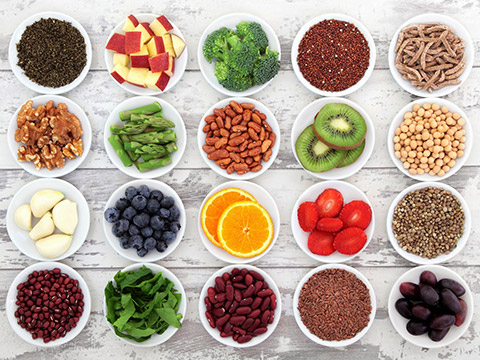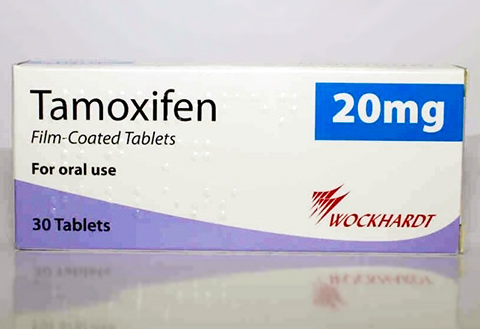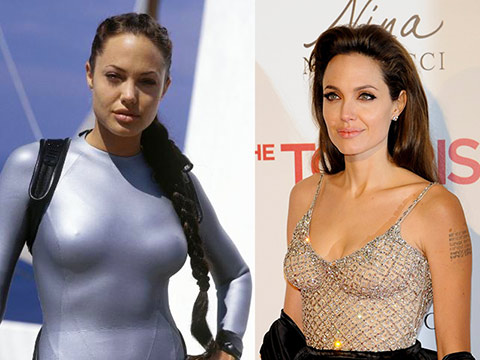How nutrition can prevent cancer
 When people get cancer, they oftentimes look to nutrition as a way to cure their cancer – or at least to help them stay healthy enough to endure traditional cancer therapy. Nutrition is important at this time, and may be very helpful. A better approach, though, would be for all of us to use nutrition as a key factor in preventing cancer in the first place.
When people get cancer, they oftentimes look to nutrition as a way to cure their cancer – or at least to help them stay healthy enough to endure traditional cancer therapy. Nutrition is important at this time, and may be very helpful. A better approach, though, would be for all of us to use nutrition as a key factor in preventing cancer in the first place.
Not everyone’s risk of cancer is the same, since it depends upon their genetic predisposition to cancer, environmental factors; their general health status; and their health lifestyle. Especially their eating pattern. What a person eats, or doesn’t eat, can have a major impact on the type of cancer that may develop – and whether it occurs at all.
Experts estimate that up to 50% of all cancers are related to a person’s eating pattern. Some of the cancers are due to what that person eats – such as saturated fats, meats that have been seared while cooking, or excess calories. What’s really important to know, however, is that most cancers develop not because of what is eaten, but because of what is not eaten. Surprising, but true. Nutrition can reduce your risk of cancer, but only if you follow a diet of inclusion: a strategy of including certain foods and nutrients in your diet. You will not reduce your risk as much as you can if you just focus on what you shouldn’t eat.
Foods and the protective nutrients within them basically work by one of two mechanisms: they either have a specific biochemical or physiological action, or they provide a source of protection against harmful or carcinogenic substances. In some cases, good nutrition reduces our risk of cancer by keeping organs or systems healthy, so they can withstand the effects of harmful agents. These are examples:
- Immune System Function and Support – for surveillance against cancerous cells (protein, zinc, glutamine)
- Liver Function – to detoxify harmful substances & produce protective factors (glutamine, protein, vitamins, monounsaturated fatty acids)
- Skin Integrity – keep out chemicals and organisms & protect against sun (protein, Vitamin E; Vitamin C; monounsaturated fatty acids; beta carotene)
- Good blood flow – so cells can receive their nourishment and protective factors (water, protein, minerals, Vitamin E; zinc for stable blood glucose)
In other cases, the nutrients and protective factors allow cells to protect themselves against injury, especially of the DNA (the genetic material), and as importantly to repair the cellular and DNA damage. Basically, cancer cannot develop without cellular and DNA damage, so protecting against the damage in the first place is critical. And providing the cells with the nutrients to repair any DNA damage is perhaps even more critical. Essential to the cell’s ability to protect itself are the anti-oxidants, plant phytochemicals, selenium, and protein.
There are also many protective factors in food, including the phytochemicals such as Quercetin in fruits, the Sulforaphanes in cruciferous vegetables (broccoli, cabbage, cauliflower, Brussels sprouts), and a variety of fibers in legumes. These anti-carcinogens act in different ways in the body, some of them as anti-oxidants, but in all cases reduce your risk of cancer.
So does fiber, at least for colon cancer. Either by diluting the carcinogens in the food we eat, by holding them away from the walls of the intestine, or by moving them through rapidly before they can injure the cells that line the gut, the insoluble fibers (grains, vegetables) can significantly reduce a person’s risk of colon cancer. Studies from all over the world show that people who eat a high-fiber diet are much less likely to develop colon cancer. So eat your veggies!
Underlying all this is a rather important point: the nutrients and protective factors have to be absorbed before they can help reduce cancer risk. So good general nutrition that supports the Gastrointestinal System itself is also very important. With age (and with smoking), the GI system may not be as healthy – which may be a factor in why there is an increased risk from cancer. That’s why it’s so important to provide excellent nutritional support throughout a person’s lifespan.

Foods to prevent cancer
Here’s a list of foods that may help prevent cancer:
- Grapes
- Avocado
- Apple
- Blueberry
- Acai berry
- Goji berry
- Strawberry
- Citrus fruits
- Pomegranate
- Lychee
- Kiwi
- Honeydew melon
- Watermelon
- Artichokes
- Asparagus
- Broccoli
- Brussels sprouts
- Cabbage
- Celery
- Cucumber
- Cauliflower
- Garlic
- Ginger
- Ginseng
- Chili peppers
- Jalapeños
- Turmeric
- Herbal green tea
- Tomatoes
- Shiitake mushrooms
- Seaweed
- Flounder
- Bok choy
Conclusion
Nutrition can reduce your risk of cancer. So keep an eye on your saturated fat intake and on how much weight you’re gaining. But most importantly, make sure you include all the active and protective factors in your diet and supplemention pattern. There’s no absolute guarantee that you won’t get cancer. But your risk is substantially reduced.






